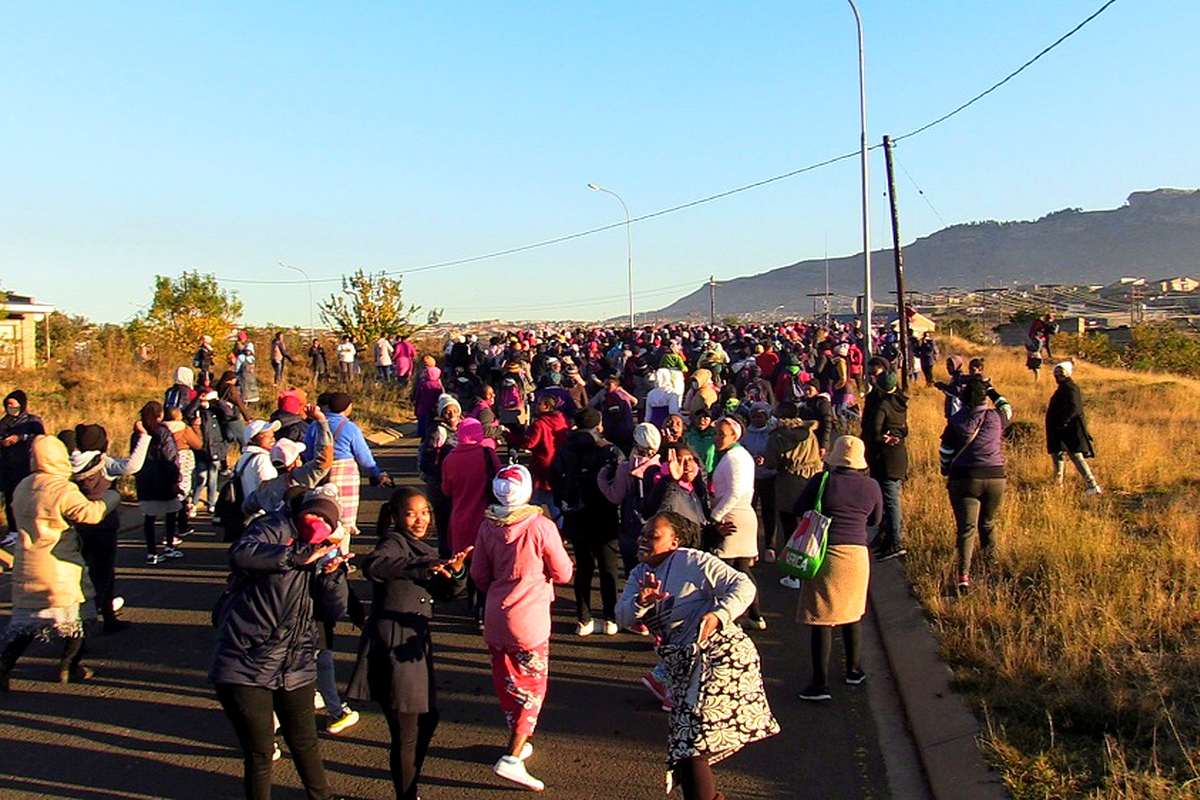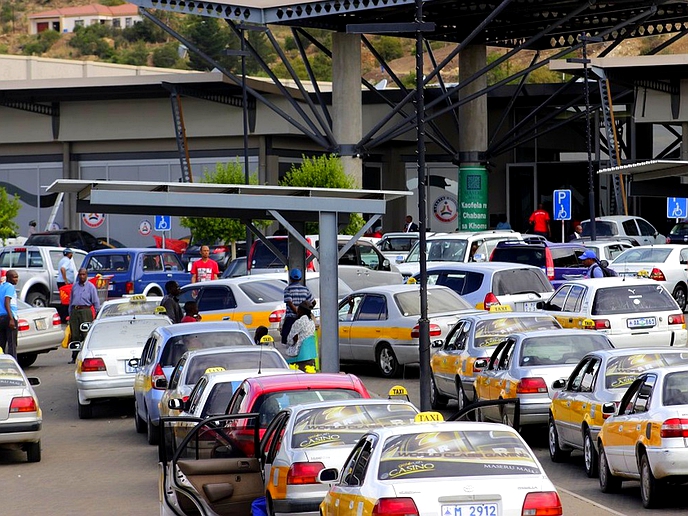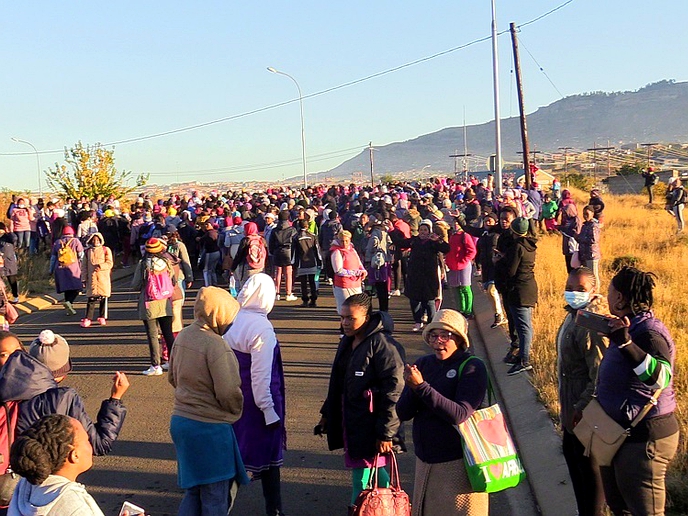PROTESTS continue to escalate in Maseru and Maputsoe as thousands of factory workers take to the streets, demanding the publication of a government gazette that would see them earn improved salaries for the first time since 2019.
business
May 17, 2021
NEO SENOKO
3 min read
Factory workers protests intensify

Picketing factory workers block the Thetsane Road
The mass actions which began a few weeks ago in Maseru intensified on Monday morning when workers in Maputsoe joined the boycott and also started demonstrating outside of their work places.
The demonstrations are spearheaded by different trade unions including the National Clothing Textile and Allied Workers Union (NACTWU), United Textile Employees (UNITE), Lesotho Workers Association (LEWA), Lentsoe La Sechaba Trade Union (LESWA) as well as Construction, Mining and Quarry Trade Union (CMQ) and Lesotho Wholesale, Catering and Allied Workers Union (LEWCAWU).
In Maseru, traffic was brought to a standstill in the early hours of Monday morning along the Ha Thetsane road where factory workers demonstrated their fury by blocking roads with burning tyres and chants which called for police intervention.
A few weeks ago, three people were shot by police during a similar protest, in an attempt to disperse picketers.
One of the injured people was a street vendor was operating his stall nearby.
On Monday, organisers told Metro that at least four people were detained by police while five others, including four in Maputsoe and one in Maseru were injured during the demonstrations.
The protests, despite the injuries and police brutality, are set to continue until the government responds to the workers’ grievances, the organisers warned.
“We will continue protesting until we get what we deserve. Some people have been injured while others have been arrested by police. But we are currently working around the clock to ensure that those that have been arrested are released,” NACTWU Secretary General Sam Mokhele told Metro on Monday.
Among other things, the workers want the government to publish the gazette which they say was finalised in 2020 by the then Minister of Labour and Employment, Keketso Rantšo.
Employers were offering only six percent while the employees demand a 20 percent increase.
“We want the minister to arrange Wages Advisory Board meetings to deliberate on all proposed issues that are in the best interests of the workers and their welfare,” Mr Mokhele said.
Unions are further demanding that the Ministry of Labour should pass the reviewed Labour Code Order of 2006.
They say the Minister of Labour, Moshe Leoma should fast track the issuance of this bill as it is beneficial to the workers, employers and the country as whole.
They also want the government to issue out the social security bill which they argue, could have helped workers during devastating situation of the COVID-19 pandemic.
“We are unhappy with how COVID-19 regulations are being made as they collide with the supreme law which is the Labour Code and therefore prejudicing the workers. We demand workers to be represented in the making of these regulations by NACOSEC,” Mr Mokhele further showed.
The Ministry of Labour and Employment is yet to respond to these challenges.
Enjoy our daily newsletter from today
Access exclusive newsletters, along with previews of new media releases.
The textile and apparel industry in Lesotho grew from having just a handful of factories in the 1990s to becoming the largest private sector employer, providing over 40 000 jobs and benefiting around 13 percent of the country’s population, according to the World Bank.
Between 2001 and 2004, textile and apparel exports from Lesotho to the United States of America increased from $140 million to $450 million, representing a 22 percent increase.
The foreign investment that poured into Lesotho during that time facilitated structural transformation and boosted the long-term competitiveness of the sector.
The manufacturing sector grew by 34 percent between 2014 and 2019, owing largely to a tripling of textile and apparel exports to South Africa, which has helped offset the decline in exports to the USA.
These series of strikes will certainly contribute to the already threatened industry due to the ongoing COVID-19 pandemic.
Lesotho faces a tough fiscal outlook as the Southern African Customs Union (SACU) transfers, private investments and exports are declining.
Real gross domestic product growth is estimated to have contracted by 15.7 percent in the second quarter of 2020, largely due to the negative shock of the pandemic.
Tailored for you






